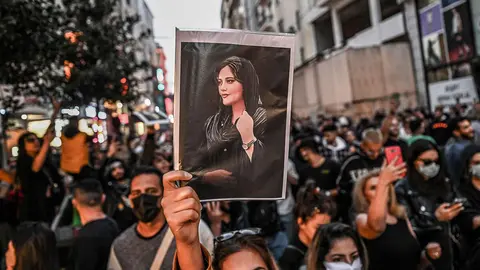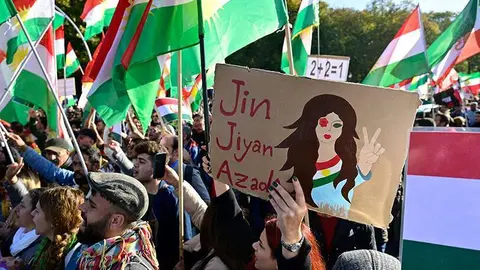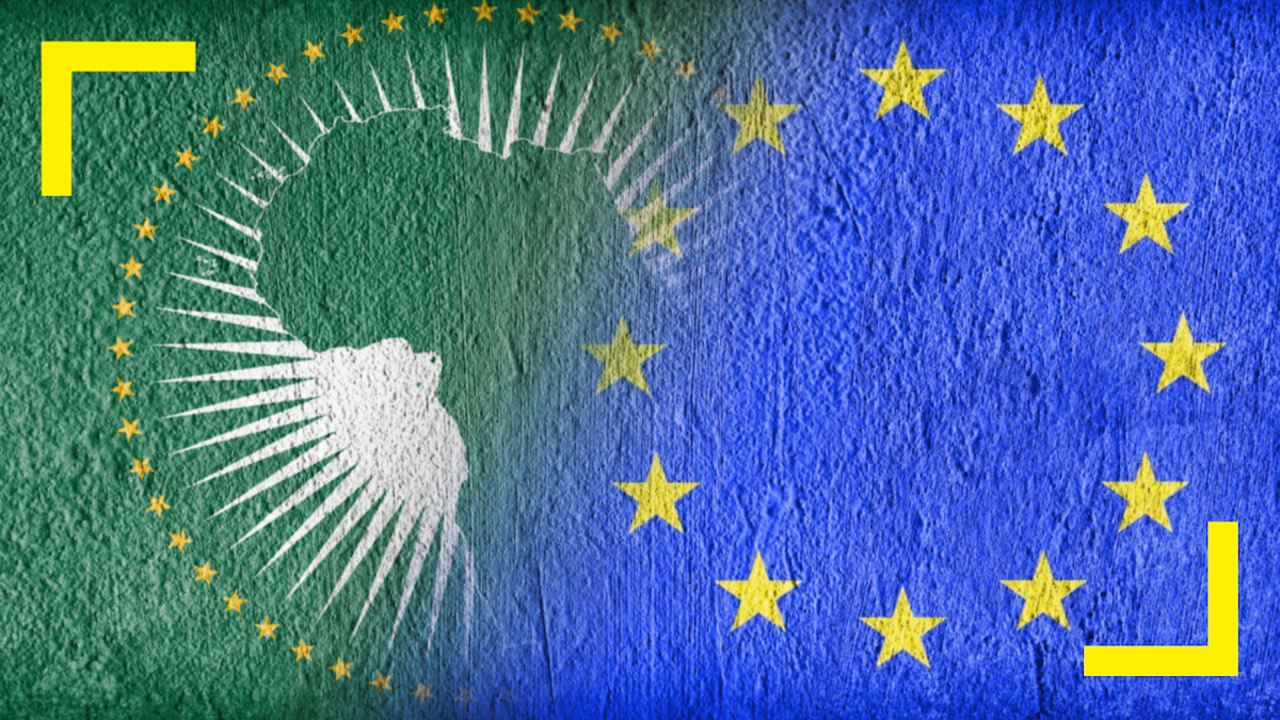"The Iranian regime cannot extinguish this revolution that took root forty years ago"

Massoumeh Raouf's story is the story of thousands of Iranians whose lives have been cut short since 1979 by the ruthless regime in Tehran. Like many other critics of the government installed after the triumph of the Islamic Revolution, Raouf was arrested and sentenced to prison, from where she managed to escape at the age of 20, after trying twice.
Since her escape, Raouf has lived in exile, where she has become a writer and journalist. She is also active in the Campaign for Justice for the 1988 massacre of political prisoners.
Now, coinciding with the anniversary of Mahsa Amini's death and the beginning of the mass protests against the regime, Raouf presents her new work in comic format, 'A Little Prince in the Land of the Mullahs', in which she tells the story of her brother Ahmad, murdered by the authorities in 1988.
https://t.co/5UNRhksgVi : Un proverbe iranien dit «Les tempêtes donnent des racines plus profondes aux chênes». C’est le cas de votre frère Ahmad?
— Massoumeh Raouf (@MassoumehRaouf) September 25, 2023
Oui, Ahmad est un arbre de la résistance iranienne. Il est aussi une fleur de ce magnifique jardin.
👇👇👇https://t.co/yP4cCEPMpG pic.twitter.com/VEyrDqOsz4
On the occasion of the publication of her new book, Raouf gave an interview to the French media Les Cent Plumes, where he talks about the work, his life and the current protests against Tehran.
"Ahmad was a very curious boy, blond and blue-eyed. He asked me questions all the time. After reading a Persian version of Saint-Exupéry's The Little Prince, I started calling him 'my little prince'. This nickname has stuck with him. First at home, between us, then he used it in the resistance as a radio code name," Raouf begins.
The writer defines her brother as "a tree of the Iranian resistance", noting that he was one of tens of thousands who lost their lives for opposing the new regime. "Like his fellow resisters, Ahmad stood up for his ideological and political convictions," Raouf stresses. Ahmad might have regretted it, but he decided to resist, despite the consequences. "This whole generation that resisted the dictatorship inspired the youth of today. We refused to bow down to dictatorship," Raouf stresses.
Comme les dizaines de milliers d’autres résistants qui ont perdu la vie en quelques mois pour avoir dit «Non à Khomeiny, non au régime des mollahs!», et pour avoir refusé de se repentir, assumant faire partie des Moudjahidines du peuple. #IranRevoIution #AhmadRaoufBasharidoust pic.twitter.com/AZJ3geLCzX
— Massoumeh Raouf (@MassoumehRaouf) September 25, 2023
In addition to his brother, Raouf talks about his mother, Fatimeh Seighali, whom he describes as "very strong and very protective". Her mother was also part of the resistance and supported her children despite the pressures. In this sense, the Iranian writer recalls that the role of mothers was essential, whether it was to facilitate communication between resistance fighters or to provide moral support.
Raouf grew up in a home where women were respected. "Their role within families is essential. They are the ones who transmit values," she says. In Raouf's case, the values she received were, above all, equality and justice.
It was these ideas instilled by her family that led Raouf to take part in the resistance against the Islamic authorities, which cost her several years in prison. However, after two escape attempts, he managed to escape at the age of 20. This story is recounted in a book entitled 'Escape from Prison in Iran'.
Toute cette génération qui a résisté à la dictature a inspiré la jeunesse d’aujourd’hui. On refuse de plier devant une dictature.#IranRevoIution pic.twitter.com/Vnpq7JNZie
— Massoumeh Raouf (@MassoumehRaouf) September 25, 2023
Of these hard years in prison, Raouf recalls the physical and psychological torture, but also the unity among the resistance inside the prison. In fact, she managed to escape thanks to several prisoners who distracted the guards, while others helped her climb the walls.
"When I think back to that moment, it was incredible! I can still hear my heartbeat pounding in my ear when I went through the prison gate. I was afraid the guard would hear them too," she recalls.
"The regime has failed in all areas"
At the moment it is not possible to talk about the situation in Iran without mentioning the women-led revolution that is taking place in various parts of the country, as well as abroad. In her interview with the French media, Raouf encourages people to continue "resisting this barbaric and backward regime".
Malgrés les menaces et les mesures répressives du régime des mollahs, une foule importante sur la tombe de #MahsaAmini Jina à #Saqqez aujourd'hui samedi un an après sa mort et le déclenchement du soulèvement#Iran #IranRevoIution pic.twitter.com/hXpauq8aMg
— Massoumeh Raouf (@MassoumehRaouf) September 16, 2023
The writer points out that this government has become illegitimate and that many have even abandoned it. "This religious dictatorship defined by the Supreme Leader is worse than a classical dictatorship, because it goes beyond politics. In Iran, it even interferes in people's private spheres, in all aspects of their lives, even in death," he explains. On this point, he recalls that the bodies of those killed are not returned to their families because the regime does not want commemorations, "it wants to erase this part of its history". "The same thing is happening in Afghanistan with the Taliban", she adds.
Révoltant - #JavadRouhi, 35 ans, est assassiné en prison #Iran. torturé plusieurs fois de manière atroce, sa peine de mort avait été récemment annulée suite à une forte mobilisation.
— Massoumeh Raouf (@MassoumehRaouf) August 31, 2023
un autre #Mahsa_Amini pic.twitter.com/ONvZ9lHOyJ
Raouf describes the current situation in the country as "explosive", stressing that the regime has failed to overcome the resistance, which has weakened its image both internally and externally. "Last year the whole world saw that the mullahs' regime no longer has any basis. It has failed in all areas: socially, economically, ideologically", she reflects. The writer also assures that "it will be the new generations who will put an end to it".
I invite you to read the life story of one of the victims of the clerical regime in #Iran #1988Massacre He is my brother#EndEnforcedDisappearances #Endimpunity #No2Appeasement #Time4FirmIranPolicy
— Massoumeh Raouf (@MassoumehRaouf) August 30, 2023
👇👇👇 https://t.co/abPD8Cut9B https://t.co/W6g1rZlkis pic.twitter.com/DwwFKIpOTU
Raouf draws on what many Iranians living in the country think. "Many say that the Supreme Leader will not last much longer. The current regime cannot extinguish this revolution that took root forty years ago," she concludes.










